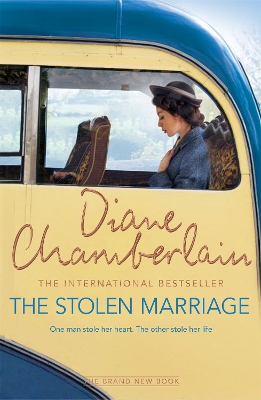Reviewed by kimbacaffeinate on
Through stubbornness and Henry's understanding, Tess gets her nursing license, but he forbids her to work. As his wife, labor was seen as beneath her station, but when a polio epidemic breaks out, and a hospital is set up in Hickory, Tess soon finds herself working. Here, Tess meets up with the young doctor she abandoned and confesses everything to him. It was fascinating learning more about this epidemic, iron lungs, and these makeshift hospitals. It was heartbreaking, and the story shared both joyful and tearful moments. Chamberlain detailed societies fears and misunderstandings of this epidemic that devoured children and folks of every race and social standing.
THE STOLEN MARRIAGE not only dealt with the polio epidemic, but it shared the pressures of society and racism. We delve into Tess's mistakes and consequences. We explore Southern culture, marriage laws, racism and more. Chamberlain's research is evident, and her eloquent writing styles paint a detailed picture of the climate and characters in 1944. There is romance threaded throughout the story, and I found it touching and surreal. We also get a bit of suspense, regarding Henry's odd hours and hidden money.
This is the type of story that pulls you, connects you to the characters and brings the period to life in vivid color. Each of the characters is flawed and realistic. Chamberlain shines a realistic light on situations these characters faced, allowing the reader to become emotionally connected. She combines the best of fiction and history giving readers a story that will stay with them long after the book ends.
A must-read for fans of historical fiction, diversity, and American history. THE STOLEN MARIAGE ranks among my favorite Diane Chamberlain novels. This review was originally posted at Caffeinated Reviewer
Reading updates
- Started reading
- 2 September, 2017: Finished reading
- 2 September, 2017: Reviewed

